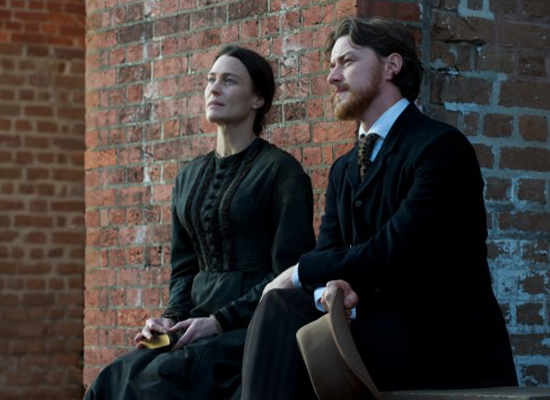The Conspirator - The spectre of Guantánamo haunts Robert Redford's historical drama

The latest updates, reviews and unmissable series to watch and more!
You are now subscribed
Your newsletter sign-up was successful
Want to add more newsletters?

ONCE A WEEK
What to Watch
Get all the latest TV news and movie reviews, streaming recommendations and exclusive interviews sent directly to your inbox each week in a newsletter put together by our experts just for you.

ONCE A WEEK
What to Watch Soapbox
Sign up to our new soap newsletter to get all the latest news, spoilers and gossip from the biggest US soaps sent straight to your inbox… so you never miss a moment of the drama!
Robert Redford’s intriguing historical drama The Conspirator brings to light an overlooked episode from America’s past but clearly intends to shine a torch on the present-day US as well.
The film’s setting is post-Civil War Washington in 1865 but could just as easily be the aftermath of 9/11. The US is reeling from a terrorist outrage – the assassination of President Lincoln – and the government doesn’t care what legal and constitutional short cuts it takes to steady the nation and quench its thirst for revenge.
James McAvoy’s rookie lawyer Frederick Aiken does care, though. The film’s liberal conscience, he’s a Union war hero who is assigned against his will to defend one of the alleged conspirators behind Lincoln’s assassination, Robin Wright’s boarding-house owner and Southern sympathiser Mary Surratt. As Kevin Kline’s ruthless Secretary of War tries to railroad a verdict through a military tribunal, the spectre of Guantánamo Bay isn’t far away.
Some viewers will probably feel that Redford is being overly preachy, but the parallels he draws between then and now are undeniably fascinating. The night of Lincoln’s killing is vividly staged and the subsequent courtroom drama is both gripping and enraging. A history lesson, yes, but a valuable one.
On general release from 1st July.
The latest updates, reviews and unmissable series to watch and more!
A film critic for over 25 years, Jason admits the job can occasionally be glamorous – sitting on a film festival jury in Portugal; hanging out with Baz Luhrmann at the Chateau Marmont; chatting with Sigourney Weaver about The Archers – but he mostly spends his time in darkened rooms watching films. He’s also written theatre and opera reviews, two guide books on Rome, and competed in a race for Yachting World, whose great wheeze it was to send a seasick film critic to write about his time on the ocean waves. But Jason is happiest on dry land with a classic screwball comedy or Hitchcock thriller.


